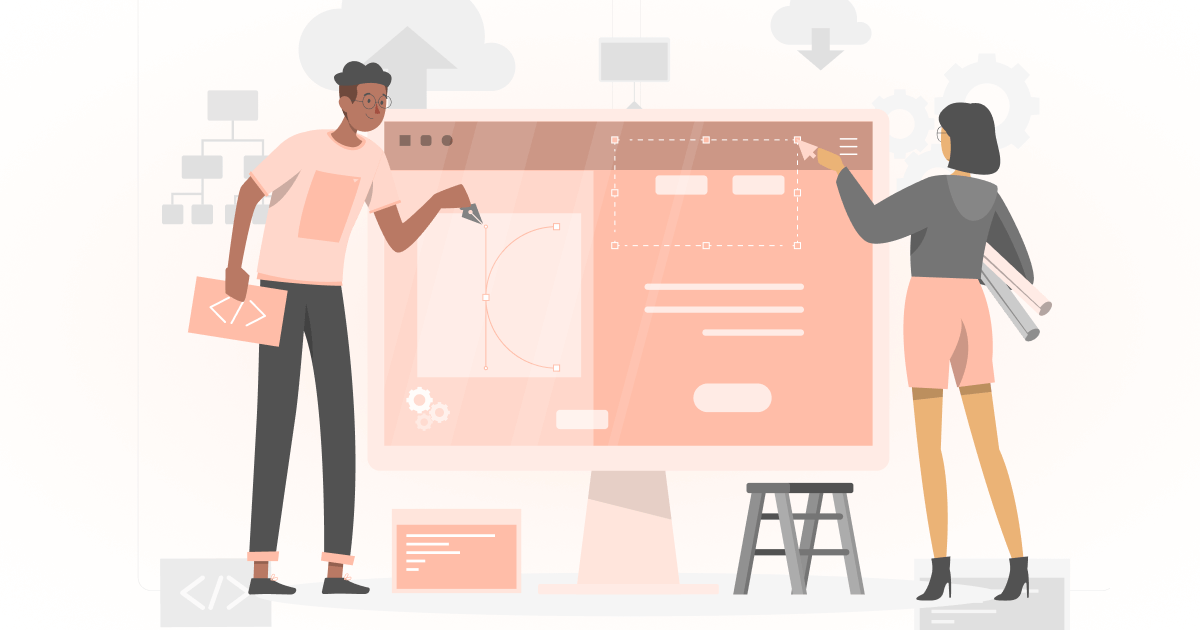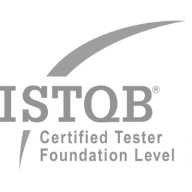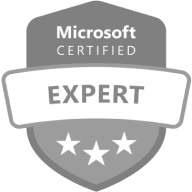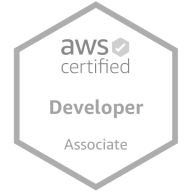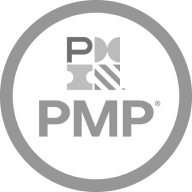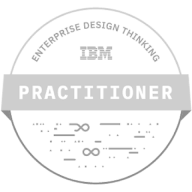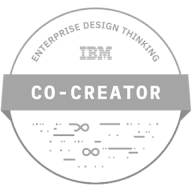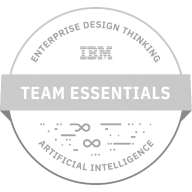
8 Latest Technology Trends in the Pharmaceutical IT Industry
Want to know more? — Subscribe
As IT in the pharmaceutical industry becomes further embedded, leveraging the latest technical capabilities and design practices is key. Current projections estimate the healthcare industry's investment in digital transformation will surpass $250 billion by 2033.
Softermii explores major technology trends influencing pharmaceuticals. Leveraging our experience developing MediConnect and Locum App, we provide actionable insights to capitalize on the promise of digital transformation.
Whether enhancing drug development or clinical trial management, embracing next-generation platforms becomes essential. The industry invests heavily in digital transformation, so capitalizing on the latest tools will only grow further over time.
Why Is the Future of Information Technology in the Pharmaceutical Sector?
Innovations propel the modern world. To keep up, pharmaceutical companies should be ready to embrace the most recent technological breakthroughs to create quality medicines and satisfy patients.
Thus, IT in the pharmaceutical sector is primarily about improving drug production's efficiency and distribution among the population. What else can innovation in the pharmaceutical industry do?
Deliver a Better Patient Experience
Digital transformation can positively impact patients' experiences through the use of a customer-oriented approach in the implementation of technological solutions.
Innovation in pharmaceutics can improve the relationship between businesses and their customers. For example, the ability of a patient to order medication through a website or mobile app will significantly increase loyalty to a company.
Spread More Information Online
Today's patients must access data on medications online. Thus, pharmacy customers can study drug performance and common side effects independently. It makes them more prepared when discussing treatment with their doctor and knowing what to expect from taking a specific medicine in advance.
Remain Competitive
The use of pharmaceutical IT allows companies to remain competitive. It applies to both internal and external competition.
For example, the latest technology in the pharmaceutical industry allows businesses to compete with large companies like Apple. How so? This tech giant has access to a wealth of patient health data via smart gadgets such as the Apple Watch. If pharmaceutical companies implement IT, they will also get this opportunity.
Solve the Counterfeiting Issue
IT in the pharmaceutical sector can also help combat counterfeiting. Any patient can use digital technology to verify the authenticity of medications, for example, by scanning the barcode on the packaging.
Enhance Drug Development
Technology can increase the efficiency, quality, and speed of drug development. For example, artificial intelligence can process large amounts of data and detect relationships and patterns.
Top 8 Pharmaceutical Industry Technology Trends
Let's look at the major pharma IT trends to find out what awaits this industry in the future.
1. Artificial Intelligence and Machine Learning
Artificial intelligence is becoming increasingly prominent in the healthcare sector. The global healthcare AI market is expected to reach $208.2 billion by 2030. It will show a rapid annual increase of more than 23.4%.
AI and ML benefit the pharmaceutical industry by offering decent data analysis and forecasting potential. Artificial intelligence can process large amounts of information much faster and more accurately than pharma lab workers. As a result, drug creators can improve the efficiency and quality of drug manufacturing.
2. Digital Therapeutics
Digital therapeutics provides treatment to patients using evidence-based software and digital devices. It reduces or eliminates drug use. And yet, it is one of the latest pharma healthtech trends. We will explain to you why.
Pharmaceutical companies can partner with technology businesses to supply the necessary medicines for disease prevention. That is, digital therapy can support the use of conventional drugs.
3. Cloud Technology
Cloud technology is a steady trend for businesses in various industries. In the pharmaceutical field, this innovation allows for more efficient work. It provides the opportunity for data analysis, increased information security, and scaling ability, which allows you to store a huge amount of patient data.
4. Big Data
The use of big data is also one of the pharmaceutical information technology trends. Businesses in the pharmaceutical sector can profit greatly from analyzing these data sets. Let's go into further depth about these benefits.
Big data analytics can help create more effective drugs and make scientific discoveries in pharmacology. It offers an opportunity to develop personalized medicines by studying genomic data. Additionally, employing healthcare data visualization techniques can provide valuable insights. It allows for a clearer understanding of complex information. It is also a chance to cut expenses by analyzing metrics like the average cost of ingredients, the overall medication spending, etc.
5. Digital Training
Digital training provides the acquaintance of pharmaceutical workers with the latest available innovations. These include, for example, an electronic signature or software for maintaining electronic documentation on the administration of medicines.
Introducing employees to new technology in the pharmaceutical industry is incredibly significant these days. This way, you can set up and speed up some processes in your pharmaceutical business.
6. Precision Medicine
It offers an innovative approach to diagnosing, treating, and preventing diseases by studying the genes and patient lifestyle.
By 2030, the value of the precision medicine market will reach more than $175 billion. This growth is largely due to the popularity of bioinformatics. It allows for data analysis, making prescriptions and treatments as personalized as possible.
7. Blockchain Technology
Blockchain technology can help the pharmaceutical industry in many ways. First, it is possible to set up efficient production and distribution of medicines. Second, its help with the data analysis leads to better results in drug development.
Blockchain tech in pharma also offers a high level of security and transparency. With it, companies can fight against counterfeit and poor-quality drugs.
8. Advanced Analytics
Advanced analytics is one of the main pharmaceutical information technology trends that can change the approach to drug manufacturing. Companies use AI, ML, big data, and cloud technologies to implement it.
Processing and analyzing large data sets can help pharmacists draw more accurate conclusions about the effectiveness of drugs and side effects.
High Demand for Skilled Healthcare Developers
Given the digital transformation in the pharmaceutical field, the need for skilled healthcare developers is growing. Demand for pharmaceutical software has also increased due to the rising number of pharmaceutical companies on the market.
Pharmaceutical IT allows businesses to automate administrative processes while increasing their profits. Software in this industry can have many options for implementation: medicine distribution, drug production, supply chain management, quality control of medications, and so on.
The need for healthcare developers will be stable in the coming years, given the significant growth of the pharmaceutical market. Just imagine: in 2027, the global pharmaceutical market is expected to reach $1.9 trillion!
Softermii's Experience with Digital Transformation in the Pharmaceutical Sector
Our team has developed several first-class digital solutions for the healthcare and pharmaceutical businesses. Our expertise extends to telemedicine and mHealth as well.
We can develop software for pharmacies, pharmacists, and their patients. For our part, we guarantee full regulatory compliance following such security protocols as HIPAA, GDPR, HL7, SOC2, and local privacy laws.
We suggest you get acquainted with two products we have developed for our clients in the pharmaceutical sector.
Locum App
Locum App is a mobile and web application for recruitment in the UK's pharmaceutical market.
Our main goals in developing this platform were:
- Solving the problem of recruiting pharmaceutical staff and making it easier for pharmacists to find an employer
- Creating a convenient platform for interaction between employers and pharmaceutical workers
To achieve our goals, we have added the following features to the platform:
- Separate admin panels for pharmacists and pharmacies
- Ability to post vacancies and react to them
- Personal calendar for appointment scheduling
- In-app messenger and notifications
As a result, we have created a convenient platform that allows pharmacies to easily and quickly recruit the needed staff. Locum App became the market leader and the first online community of pharmacies and pharmacists in the UK.
MediConnect
MediConnect is a mobile application that serves as a tool to connect doctors with companies that deliver medical products.
We developed this application considering two groups of users:
- Doctors. Here, we have presented a convenient search for medical products and services.
- Healthcare product companies. For them, we have added video and audio communication features to make interacting with doctors and selling products and services easier.
Our main goals in developing this app were:
- Increasing the effectiveness of interaction between doctors and healthcare product companies
- Opening new sales channels for product companies
- Creating a user-friendly interface
We implemented VidRTC, our video and audio communication technology, allowing seamless and high-quality P2P communication. Azure speech recognition has enhanced the ease of user interaction further and eliminated language barriers. Our developers have also integrated PayPal for in-app payments.
As a result, MediConnect attracted 360 healthcare companies and 9,267 physicians in the first six months after launch. Now, every doctor uses our app at least four times a month.
Final Thoughts
The pharmaceutical business continues to evolve, driven by the compelling wave of digital transformation. Blockchain, AI and machine learning, cloud solutions, big data, precision medicine, and advanced analytics are already a strategic imperative. These innovations are key to propelling the pharmaceutical industry forward.
For companies seeking to integrate these trends into their operations, the expertise of professionals is crucial. This is where Softermii stands out. Our seasoned team can help propel your ideas from concept to completion. We ensure your software development needs are met with unparalleled proficiency.
Reach out to us, and we'll create novel digital products for you from the ground up. Let's work together to advance pharmaceutical innovation and push the boundaries of care.
Frequently Asked Questions
What is the role of IT in the pharmaceutical industry?
Information technology helps improve patients' experience when interacting with pharmacies and enhances the quality of research related to the production of drugs. It also assists in increasing the competitiveness of pharmaceutical companies in the market.
How are AI and ML used in pharma?
They help in the analysis of large collections of patient data. Based on this information, it is possible to improve the efficiency of drug production or the accuracy of medication prescriptions.
Is digital transformation relevant to the pharmaceutical industry?
Digital transformation is relevant to most modern industries, and the pharmaceutical field is no exception. Implementing technology can help optimize business processes, produce better medicines, and meet patient needs.
What are the main pharmaceutical information technology trends?
Major trends in the pharmaceutical industry include AI and ML, digital therapeutics, cloud technology, big data, digital training, precision medicine, blockchain technology, and advanced analytics.
What are the technologies used in the pharmaceutical industry?
Recent innovations include blockchain and cloud technologies, AI, and machine learning. Big data and advanced analytics are also becoming more widespread. Furthermore, software development, particularly web and mobile apps, remains relevant for this sector.
How about to rate this article?
1926 ratings • Avg 4.7 / 5
Written by:










